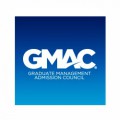 MBA applicants are changing their study habits and goals to reflect the complex business climate of today, according to the 2013 QS TopMBA.com Applicant Survey.
MBA applicants are changing their study habits and goals to reflect the complex business climate of today, according to the 2013 QS TopMBA.com Applicant Survey.
The survey also found students are more internationally focused and show an increased interest in alternative MBA education methods. QS surveyed 4,100 MBA education applicants from all over the world to learn about the goals and educational aspirations of future business leaders.
The survey detailed the pragmatism of students who are starting their MBA. It indicated that students are more risk averse today and place a high value on job security. There has been a rise in the number of MBA candidates who plan to seek employment in large companies, from 19.8 percent in 2011 to 23.5 percent in 2013.
The top ambition of MBA applicants remains the goal of becoming an entrepreneur. However, the number who can picture themselves as entrepreneurs in 10 years has dropped from 28.7 percent in 2011 to 26.8 percent in 2013.
MBA applicants are starting to consider a broader range of destinations for studying business. While the United States and United Kingdom remain the top destinations for students, Canada and Australia have both shown strong gains in student preference. Singapore is currently the most appealing Asian country for study, growing from 6.4 percent in 2009 to 15 percent in the current survey.
MBA program candidates have more realistic salary expectations than they had in 2012, as well. Average target salary has dropped from $126,500 to $113,000 in the last year. Despite this drop, the QS report indicates the $113,000 target salary is a “testament” to the students’ continuing confidence in the value of an MBA education.
The survey revealed that MBA students are changing their overall approach to a MBA education. Students are increasingly interested in part-time schooling, online learning and distance learning. Interest in full-time study has declined for the second consecutive year to 82.2 percent. According to QS researchers, the support for full-time MBA education remains strong, at over 80 percent, but the rise in alternative study approaches means that a growing number of people will be able to take advantage of business education without radically changing their lifestyles.
In an interview with MBA Channel’s Barbara Barkhausen and Barbara Bierach earlier this year, Dave Wilson, CEO of the Graduate Management Admission Council (GMAC), said that a greater demand for younger talent is driving growth and change in MBA programs. He said that prospective students under 25 make up 47 percent of MBA test takers, compared to 38 percent in 2008.
Nunzio Quacquarelli, the founder of the TopMBA.com Applicant Survey, told MBA Channel that alternatives to full-time MBA programs have been gaining in popularity because of advances in distance learning technology and changes in the economy. Quacquarelli said students today are less inclined to give up their jobs to study in full-time programs when they can take advantage of part-time and online-based learning.






No Comment